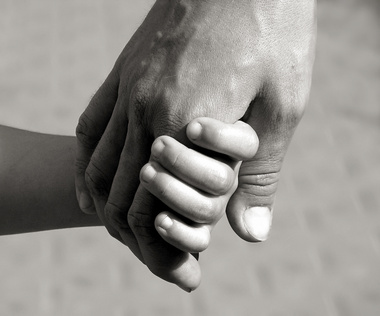 child-like
child-like Entries in child-like (1)
Asking Ourselves Our Children’s Questions
 Thursday, August 2, 2012 at 09:02AM
Thursday, August 2, 2012 at 09:02AM  “Dad, why do some people disobey God?” My five year-old son genuinely wanted to know. He and I had been talking about loving God, and expressing that love through obedience.
“Dad, why do some people disobey God?” My five year-old son genuinely wanted to know. He and I had been talking about loving God, and expressing that love through obedience.
My mind raced. Why do some people disobey God? What would he think if I told him his own father was one of those very people? Should I tell him some people live in constant rebellion against their personal, loving Father? How could I explain the crazy mixture of selfishness and insecurity that produces harmful choices? I knew I must choose my words carefully.
“Well, it’s kind of hard to explain,” I began.
“That’s OK,” he interrupted. “If you don’t know the answer, it’s alright.”
It was nice of him to let me off the hook, even if it came at the expense of my adult pride. And he was right--I didn’t know the answer. For the next few weeks I turned his question toward my own Father: “God, why do I disobey you?” In that season, my gentle Father began to reveal some of the roots of my own rebellious heart.
How do you answer a child? You may discover (as I did) that you really don’t know the answers as well as you thought you did. It’s both embarrassing and liberating: embarrassing because it bursts the bubble of presumption and exposes us for the posers we are; liberating because we become as children again before our Father, and ask of him these very same questions.
To ask yourself innocent, child-like questions is a kind of conversion. We abandon the false comfort of having an organized, consistent world view. We remind ourselves again an omniscient God is not impressed with the size of our intellect, but he is impressed with the size of our heart. We gain--perhaps for the first time--the realization that we can worship God with both wonder, innocence--and ignorance, all mixed together. We begin to discover the lesson my son gave me: if you don’t know the answer, it’s alright.
It’s not that the Heavenly Father is in favor of ignorance. Like any good parent, he delights in the discoveries we make. He rejoices as his children grow in knowledge and understanding. Yet he has also told us time and again the deepest understanding flows first from relationship: knowledge puffs up, but love builds up. Instinctively we know this is true. When we call the smartest guy in the room a know-it-all we do not mean it as a compliment.
Lately my nine year-old daughter has been exploring the depths of listening for God’s voice. She wants to know--exactly--how that works. She’s heard her Mom and Dad use phrases like “God spoke to me,” or “I think God wants us to . . . “ We’ve talked about reading the Bible, but she knows there’s more.
She wants specifics:
Have you ever heard God speak out loud? Why not?
What’s the difference between your thoughts and God’s voice inside your head?
How can you be sure it’s God speaking and not someone else?
What do you mean when you say you feel his presence? What does God feel like?
I’ve taken up her child-like challenge and together we are exploring these questions. In the process I’ve discovered that talking to your children can be dangerous. There’s even more danger in asking ourselves our children’s questions.

